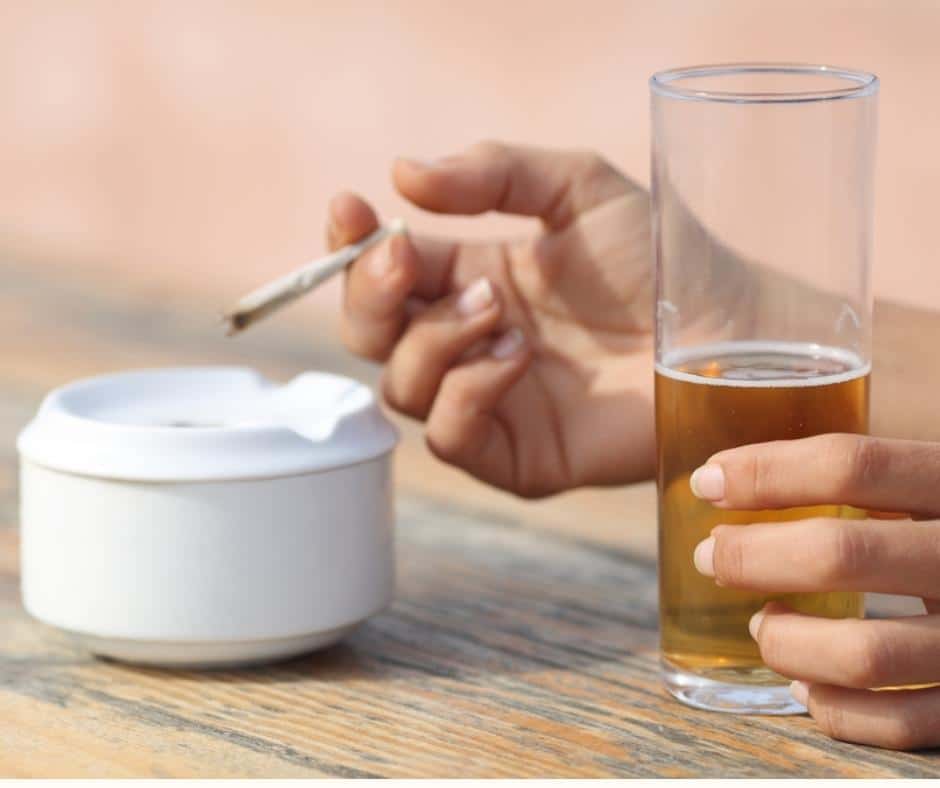What does California Sober mean?
California Sober (or Cali Sober for short) is a slang term that’s a way of saying someone doesn’t use hard drugs (i.e., stimulants, opioids) but they still partake in “soft” drugs like marijuana – and, depending on whose definition you’re going off, alcohol. Some even include occasional use of hallucinogens such as psilocybin mushrooms (magic mushrooms, ‘shrooms) in the Cali sober lifestyle.
The definition of California sober – like the reasoning behind it – is a little fuzzy and varies from person to person depending on which substances they consider “hard” and “soft”. And if you’re confused by the word “sober” being thrown into this mix, you’re not alone.
Is California Sober a real thing?
What some people don’t realize is that the term California Sober is basically a tongue-in-cheek joke equating light substance use with a California lifestyle. But while it was meant as a joke, the idea behind it is actually very similar to something real. Known as harm reduction, it’s a set of strategies and principles that have been around for a while – as early as the 1960s and 70s.
According to the National Harm Reduction Coalition, proponents of the concept support relaxed and accepting attitudes toward drug use and advocate for things like safer use, managed use, and an acceptance of people who use substances.
Their main tenets include:
- Accepting that drug use is part of our world and seeking to minimize its harmful effects.
- Understanding that drug use is a complex issue that covers a wide range of behaviors and accepting that some are safer than others.
- Advocating for improving the quality of individual and community as the bar for success, rather than total cessation of drug use.
- Proposing that non-judgmental and non-coercive services and resources are the best ways to help those who use drugs.
- Ensuring protections and a place for drug users to have a say in policy decisions affecting them.
- Recognizing and affirming that those who use drug are the primary agents of reducing the harm associated with their drug use.
- Recognizing the realities of racism, poverty, gender discrimination, past trauma and other social inequalities affect people’s capacity to deal with their drug use and any resulting harm.
- Acknowledging that harm reduction strategies don’t try to minimize the real harm and danger associated with drug use.
The very real dangers of California Sober
So, is California Sober a viable method for recovery from substance abuse and addiction?
In short, no. You can’t use drugs and/or drink alcohol and call yourself sober. You can say you’re trying to minimize the harm associated with your drug use, but equating light drug and alcohol use with sobriety sends a dangerous message to those who may only be helped by abstinence.
The reality is that this method goes against what many – if not most – experts in the addiction field suggest as best and most effective approach. And if someone with a history of addiction wants to use California sober as a way to rationalize or minimize substance abuse, even of substances like alcohol or marijuana that they consider safe, it puts them at serious risk for relapse.
Even if they’ve been sober for years and think that they have a handle on their substance abuse, addiction changes the way the brain works. Using any substance that alters the brain puts those in recovery at risk. Not just of relapse to their original drug of choice – it’s possible to become addicted to another substance as well. It also opens the door to behaviors like lying, stealing, and others that people in recovery often try to leave behind.
The idea that people in recovery for substance abuse can manage drug use of any kind seems to ignore the fact that if they could have done that, they wouldn’t have ended up in recovery for substance abuse. It would be laughable if it wasn’t so dangerous.
Why is Cali Sober so popular right now?

The sudden surge in the popularity of the phrase “California Sober” is largely thanks to singer Demi Lovato, who released a song entitled California Sober on her April 2021 album “Dancing with the Devil… the Art of Starting Over.” Lovato explained in a recent interview on “CBS Sunday Morning,” that she’s embraced the California Sober lifestyle, which she defines as consuming alcohol and marijuana in moderation.
Lovato, who was hospitalized in 2018 due to a near fatal opioid overdose, acknowledged that her approach isn’t safe for everyone. Without elaborating too much, she said she believes her managed drug use prevented her from killing herself as a result of PTSD.
Also contributing to the popularity is the prevalence and increasing acceptability (and legality) of marijuana use. According to Politico, about one in three Americans now has access to legalized marijuana. And saying you’re California Sober is more glamorous than saying you like to smoke weed.
Update: In December 2021, Lovato posted an Instagram Story in which the singer announced, “I no longer support my ‘California sober’ ways.” They added, “Sober sober is the only way to be.”
Getting real help for addiction at Enterhealth
Enterhealth understands the perils of substance abuse and addiction, which is why we champion the opinion of prevailing addiction specialists who believe the only true way to recover is through abstinence and therapeutic support for the physical, emotional, and mental issues that lead people to use.
Our comprehensive, science-based treatment programs at Enterhealth Ranch and the Enterhealth Outpatient Center of Excellence combine cutting-edge medical techniques and proven therapies to help our patients achieve a long-lasting recovery.
Based on research from the National Institutes of Health (NIH) and created by a team of addiction experts, our programs are implemented by a full-time staff of addiction-trained physicians, psychiatrists, nurses, and therapists who tailor treatment plans to each patient.
If you would like to learn more or discover how we can help you or someone you love, call us today at 800.388.4601 or visit https://enterhealth.com/contact-us/.




